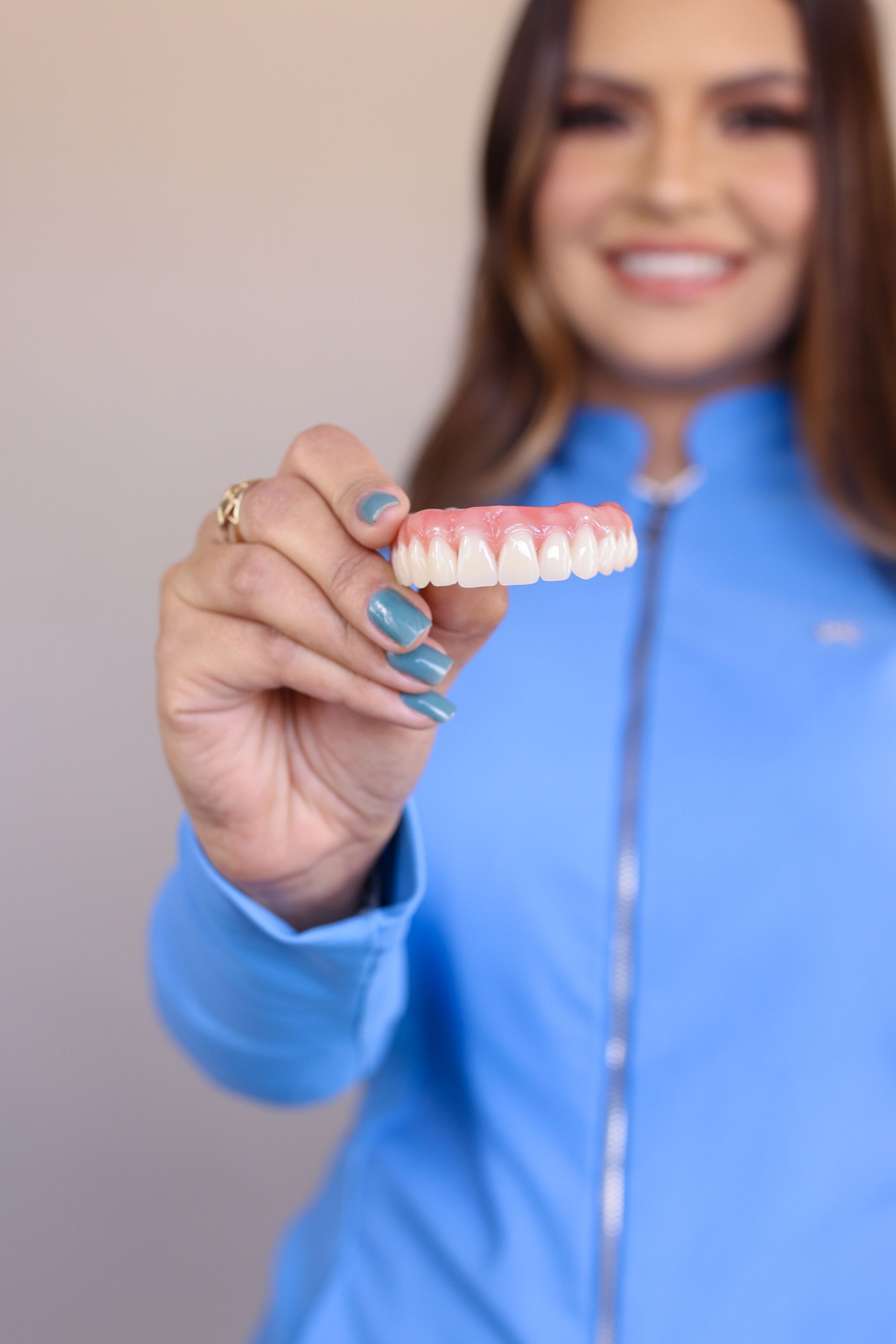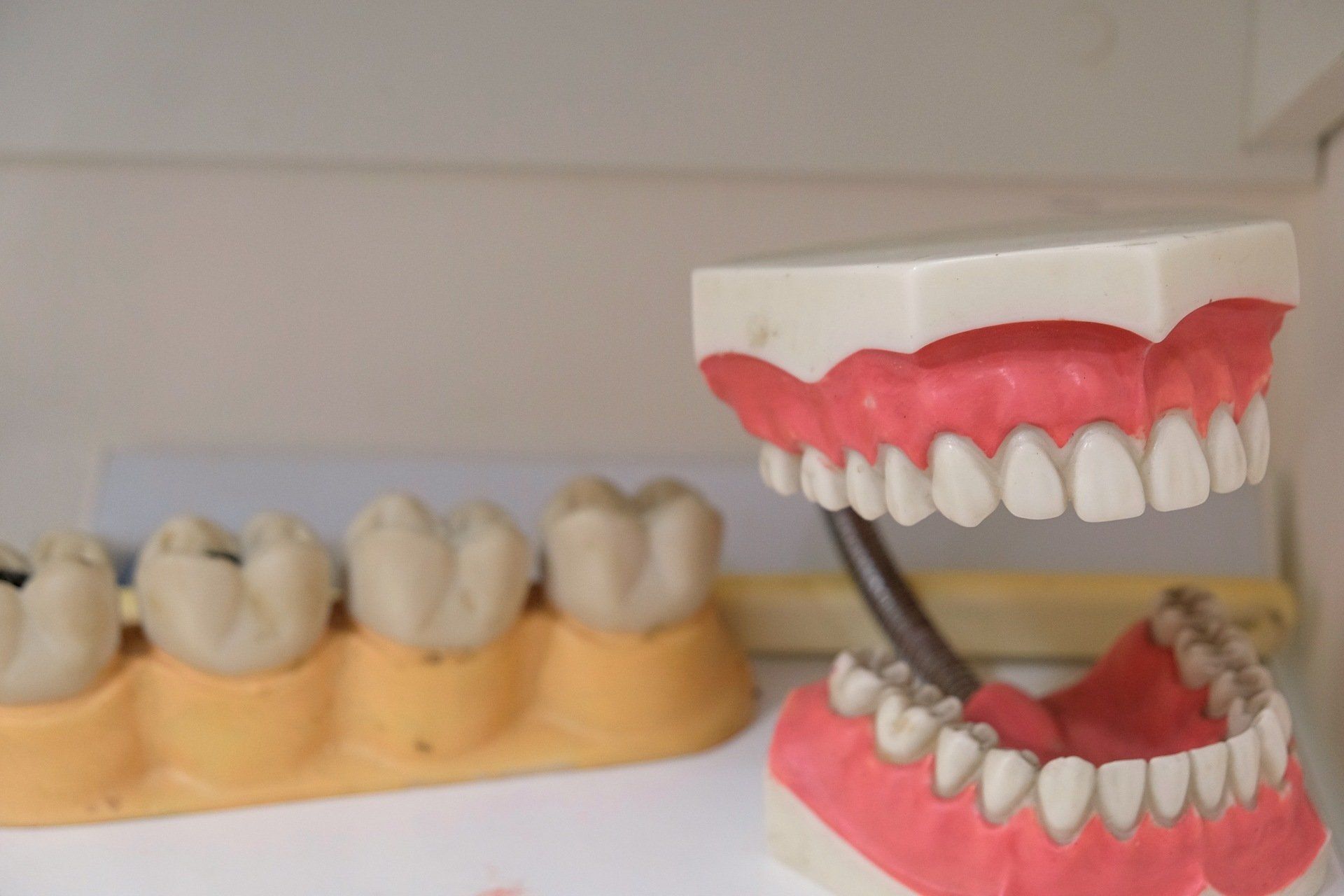Implant-Supported Dentures
What are Implant-Supported Dentures?
Tooth loss changes your oral function and often your physical appearance. But the loss of multiple or full arches of teeth can carry a more profound impact, affecting your self-confidence and general well-being.
For some patients, traditional dentures may be a viable option. But a growing number of others are turning to the permanence of implant-supported dentures for tooth replacement.
These dentures are anchored to the jaw by the strategic placement of two or more dental implants and soundly blend the stability of implant technology with the convenience of denture appliances.
If you have multiple broken or missing teeth, getting a personalized consultation with Dr. Kevin Krause will help you decide if this solution is right for you!
Implant-Supported Denture Process
Dr. Krause has received advanced training in surgical techniques. As a result, he is exceptionally skilled at completing the entire procedure from his state-of-the-art practice in Venice, Florida. We begin by using guided implant surgery, ensuring exact implant placement and more predictable results. Though Implant-Supported Dentures are a minimally invasive procedure, we offer sedation to help you feel comfortable and relaxed. During this visit, tooth extractions of broken teeth or bone grafting in areas of bone loss often are performed during the same visit as implant surgery. Dr. Kevin Krause then has his in-house lab custom-create your comfortably fitting dentures. Then, in four to six months, your implants will heal fully and fuse solidly with the jaw.
Traditional Dentures vs. Implant-Supported Dentures
Traditional Dentures
- Rest atop of the gums
- Temporary tooth replacement
- Need adhesive for retention
- Limit dietary intake
- Typically replaced every five to seven years
Implant-Supported Dentures
- Fuse with and preserves underlying bone
- Permanently replace teeth
- Provide a stable, solid biting function
- Look, feel and act like real teeth
- Allows enjoyment of favorite foods
Frequently Asked Questions About Dental Implant-Supported Dentures
The full process will take some time. Do not expect to go to the dentist and come out with a complete set of dentures. It will take months to go through the implant process. Supports are usually placed at the front of the jaw where there is more bone and fewer nerves and tissues.
During surgery, Dr. Krause will drill holes into the jaw bone where the implants will be placed. Then the implants or anchors will be inserted into the drilled holes and the gums will be stitched over the top. The bone will need to accept the implants and start to grow and fuse with them in the coming months.
After the bone and the implants have fused, the dentist will reopen the gums and, during a two- to three-week process, get the final abutments placed. These abutments will attach to the inside of the dentures.


